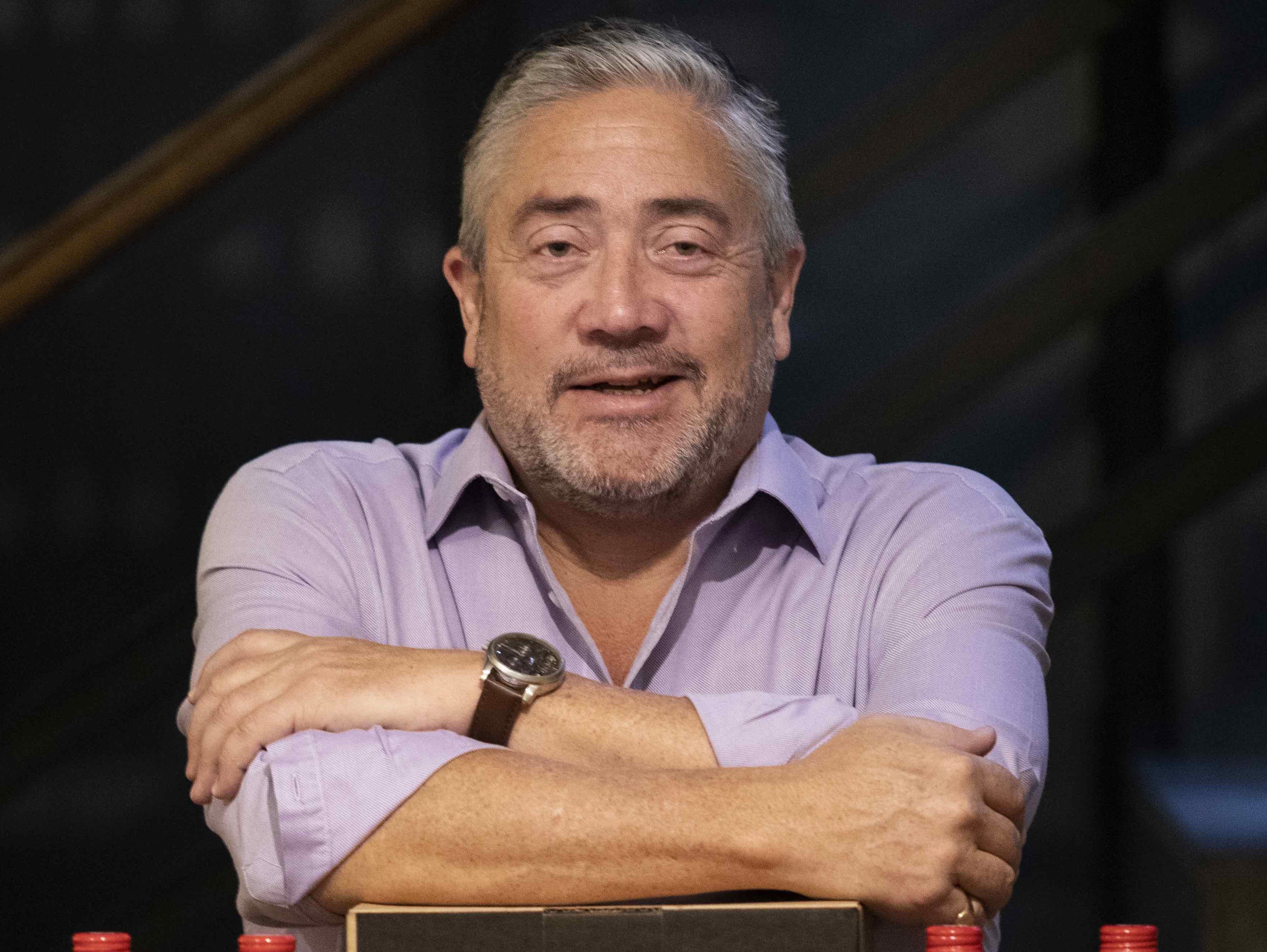Finding the right importer is important for any wine market, but particularly so if you want to get under the radar of America’s complicated three-tier system. Here Ross Sleet of Rascallion Wines and Paul Clear of Terroir Wine Group explain the steps they are taking to work together.
Ross Sleet, managing director Rascallion Wines
Can you give us a quick recap on what the brand is about?
Rascallion is a premium négociant based in Stellenbosch. We source wine from premium cellars and work with trusted winemakers to create our own distinct blends.
How is the Rascallion brand going since last time we covered you on The Buyer?
Since we last met at ProWein 2019, Rascallion has been growing exponentially, albeit of course from a small base. The biggest news is that we have secured a partnership with Terroir Wine Group in the US who has a distribution base in around 30 states and territories.
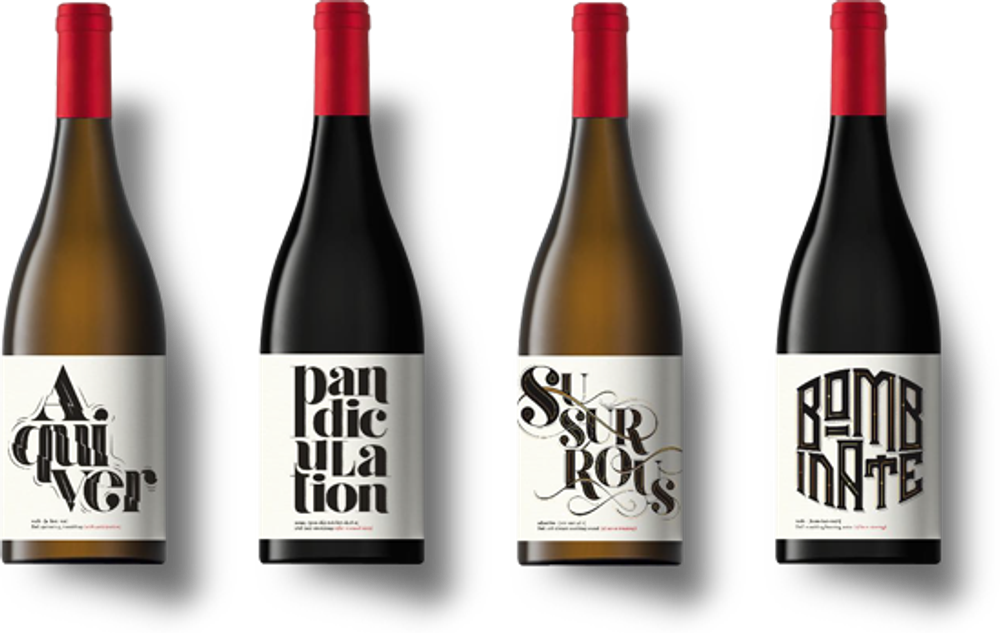
The Rascallion range is based on showcasing the best South African blended wines
A big part of your export strategy is similar to other South African producers and that is to target the US. Why is the US so important for you?
It’s a numbers game first and foremost. The US has large concentrations of wine engaged consumers in many cities across the country. When I first went to the US in 1992 the only wine culture I found in my travels was in New Orleans. Now, it’s the middle class drink of choice in many respects. Wine is part of everyday culture and is growing exponentially.
My view is that to be taken seriously globally, you have to have a serious presence in the US. The market is brutal, honest and tough, but it is rewarding.
What are the key factors you need as a wine brand to get in to the US market?
Patience, having the right partner on the ground, and understanding how much it costs to play are all vital. The final bit, which is the toughest and most time consuming bit, is to spend as much time as you can afford in trade, meeting and engaging with customers and consumers.
These are the fundamentals. Building brands takes time for the trade, and then the consumers, to get to know you and your brand. As a South African business we are many years behind countries such as France, Italy and Spain, but this paradoxically gives us an advantage because there are largely no pre-conceived views about our wines and most trade and consumers are very happy to try something new and then articulate their happiness vocally.
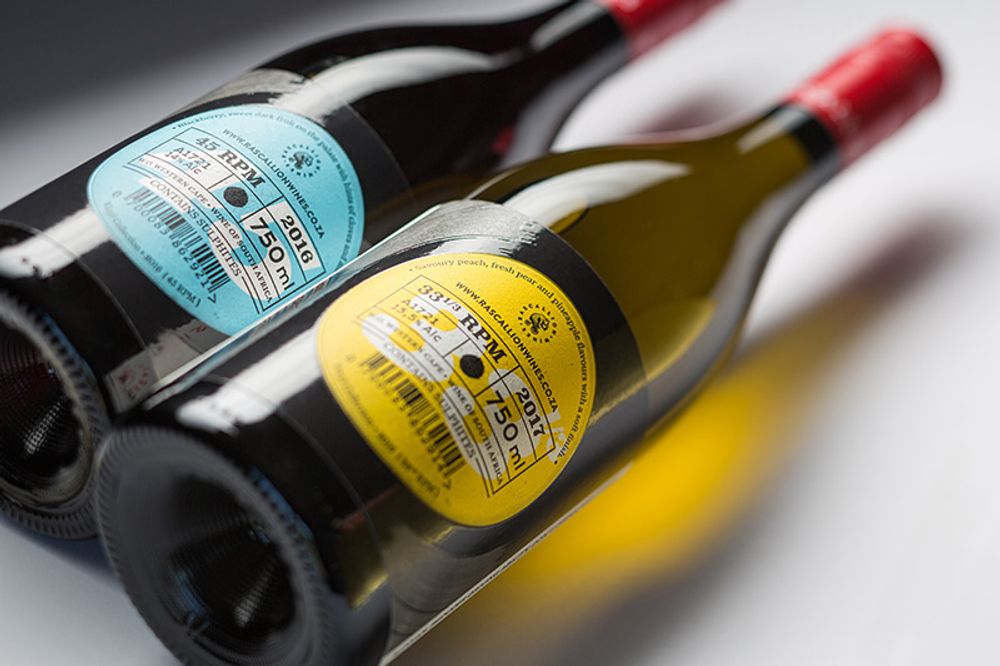
Rascallion is all about connecting with consumers, hopefully younger drinkers, with their distinctive designs and names
What have you learnt about trying to work in the US compared to working in other markets like the UK?
The UK remains fixated on price and reputation as the key drivers of decision making. The price issue is a symptom of the UK duty policy as it drives down quality in the bottle in the pursuit of achieving an acceptable retail shelf price point.
The obverse of this, is the reliance on reputation to drive trade and consumer acceptance in an attempt to break out of this price point slavery. The problem is that one is either caught between two stools i.e. you aren’t “trade sexy” enough to be a reputation build brand, and you are too expensive, or more accurately, choose to be too expensive, to be a revenue driving brand.
I lived and worked in the UK wine trade, but we won’t drive our brand down a route where it can never recover from, price wise. The US trade I have encountered in contrast, is prepared to listen and engage, drive a hard bargain, but a fair bargain, and if you are in their business, they expect you to help to sell the brand, but there is a less demand attitude.
Having said that, we have only just begun, so what looks like great growth on take up of the brand, is only the first part of the piece. The second sale is even harder as right behind you is the next brand who wants to do what you have just done.

What direct steps have you taken to get to know the US market and for buyers to get to know you?
The principle I always adopt in market is to trust your partners in trade. This translates into going where our importer deploys me and speaking to whom they want me to speak to. They live in the market and no matter how much desk top work I do, I will never know the market as well as the local sales teams. There are too many nuances for this to be possible.
So the main work I do, once we have agreed the scope and budget of what we want to achieve, is to spend time in trade. Hearing someone ask questions about South Africa, our wine culture, which varietals work etc. are what the trade and consumers want answered, to help them better understand how our wine approach differs compared to Australia for example.
It’s about respecting the trade and consumers and being in front of them as much as possible.
You have now got a US distributor. How did that come about?
I met Paul Clear, chief executive of Terroir Wine Group, as we were disengaging from another business conversation. Paul struck me as an experienced and passionate wine professional and we speak the same language business wise.
What were you looking for in them?
We were looking for the qualities stated above first and foremost, but in addition to that, someone who had a vision that dovetailed with ours. They are a driven and committed organisation who have done remarkable things in a very short period of time with initially, very limited resources people wise.
This dogged approach resonated with me in that I know how hard we have worked to get our business going, but the humility and sense of humour that accompanied our discussions about serious business issues, made me realise that we had the best fit.
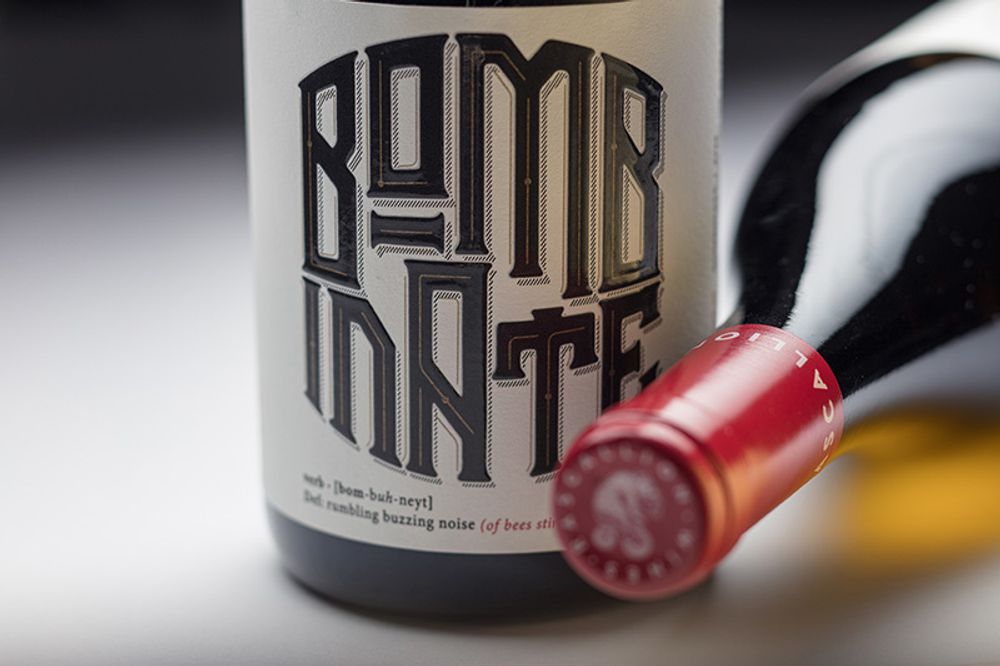
The wine trade is inherently a people orientated business, and when Paul articulated in one of our meetings that they wanted to do business with people that they get on with, I knew we had found the right partner. It’s a tough business so rather be in the trenches with people you like.
What were they looking for in you do you think?
Without putting words in Paul’s mouth, I think they were looking for a brand that understood the millennial marketing landscape, was open to working the market in a manner that worked for terroir, that understood the costs of working the market, and that they could do good business with. And have a bit of fun along the way.
I hope that’s the correct sentiment. The fact that we are a South African brand was of course key as we both agree that there is tremendous scope for South African wine in the US.
What are the next steps in terms of building sales and distribution?
I will be spending a lot of time in the US. Paul and his team have me in front of a lot of people in October and November, and as we settle into the landscape, Paul and I will begin to look at national and regional opportunities that we can leverage. We have a new range of Fairtrade wines coming out and this will assist us to grow distribution and sales as it opens up other channels.

How are you doing in the rest of the world?
Other than launching in the US, we are now in Aruba, an important hub for US and European tourists, Germany, Canada, Finland, Sweden, Kenya, and Japan. We have also cemented our base in South Africa where I have appointed an experienced team to drive our national sales strategy.
What are your next plans for the UK?
I continue to pursue opportunities in the UK as it remains an extremely key market for any wine brand wanting to be taken seriously. However, it has proved a tough nut to crack. We have had a number of discussions with various importers, but the two B’s have not helped i.e. Brexit and Boris!
The uncertainty around Brexit has meant that many decision makers are not committing to new projects which is completely understandable. I will continue to engage with trade and hopefully once Brexit is concluded, or not, the trade will be in a better position to make decisions.
Brand South Africa is flying high profile wise thanks to campaigns such as The New Wave tasting and Wines of South Africa’s South African Wine Festival, which both occurred in September. I was in London at the time and the buzz was incredible so hopefully this will continue to drive our country’s profile.
Any new wines to the portfolio?
We will be launching a new range of Fairtrade wines from South Africa shortly – five wines from the Swartland, aimed at the retail and travel retail market. The concept is fresh and exciting, much like the wines! We will also be launching a range of French and Spanish wines early next year which I have high hopes for.
Paul Clear, Terroir Wine Group
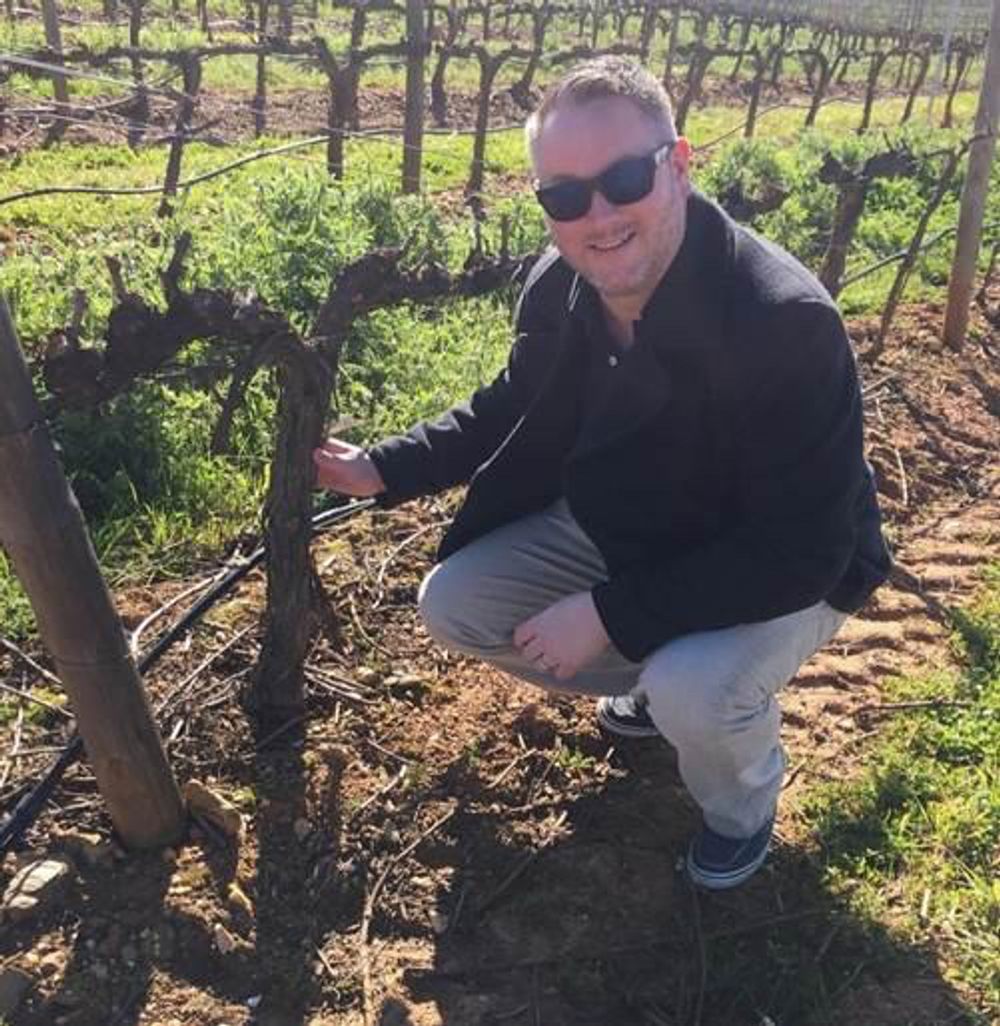
Paul Clear of Terroir Wine Group has a strong commitment to South African wines in the US
What are the key things you look for in taking on a new producer from another country?
It’s important for us that producers offer some added value. That can mean wines that are organic or some unique varietal. In this case the value is Ross and his years of experience at the top levels of the industry. His work ethic and determination are key factors in why we chose to work together.
Is South Africa different to any other country in terms of what you look for?
In our case we see South Africa as an emerging category. We started in Spanish wine in 2009 when it was just a small part of the pie in the US. Now it’s one of the fastest growing categories and third in total imports behind only Italy and France. We feel South Africa has the potential to reach similar trajectory.
What is the US perception of South African wine?
That’s a loaded question. Firstly, trying to get Americans to fall in love with Pinotage in the 90s was a hard sell. And our perception was that South Africa was putting all its efforts behind that variety. Currently, the number of well distributed South African brands is very limited to what I would consider legacy brands. Americans are looking for new and exciting and value, no matter where it’s from.
What attracted to you about Rascallion?
The branding and packaging is outstanding. The compliments on the labels and the wines never end. They fit the millennial focus our company is accustomed to marketing to.
What do you think Rascallion can do in the US?
Ross and I are dreamers for sure, with big plans and ideas. The potential for the brand is large. But it takes time and effort and the right strategy.
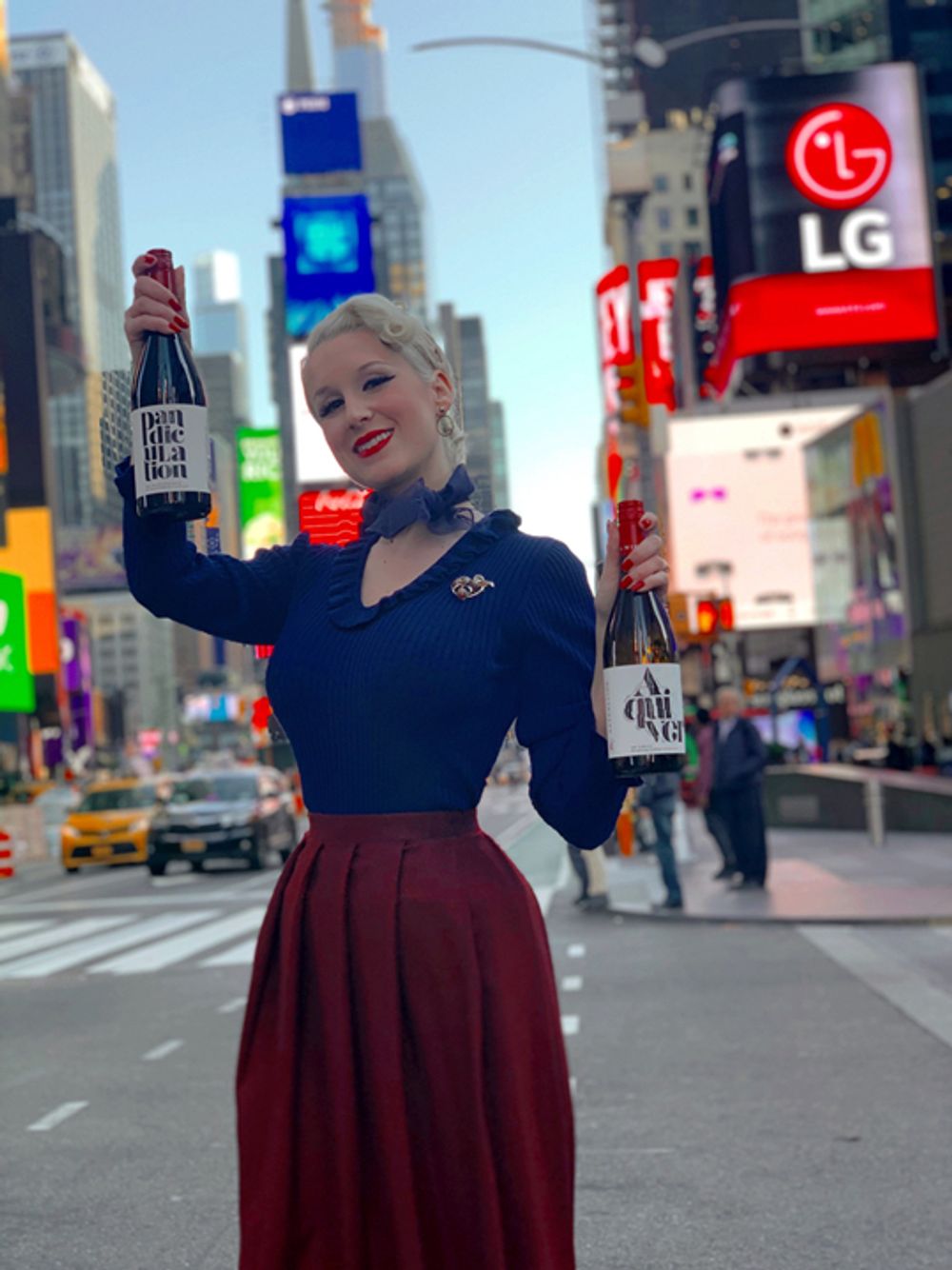
Rascallion Wines hopes to find its place in the US market
What will be your initial strategy to build distribution for them?
It’s harder and harder everyday to launch new wine brands in America. The consolidation of suppliers and distributors selling commodity items makes it far more difficult for smaller brands to get in the door and gain any foothold.
As an example, in 1994 there were 10,000 wine distributors in the US and only 3,000 wineries. Today there are 10,000 American wineries and just 3,000 distributors. But, our network of nearly 40 distributors in 30+ states means that we have some influence in getting in new brands. So we are starting there and putting aggressive programming in place for a successful launch in each market. Slow and steady should do the job.
What other advice would you give to producers looking to get into the US?
Learn how the US works. Learn the three tier system and realise that when you sell into the US you are actually selling into 50 plus countries. Every state and territory has its own laws and rules.
This is the most competitive market in the world, your pricing has to be sharp. We all know you’re proud of your wine, and you’ve spent a lot of money and resources to make it.But you have to be price competitive or you’ll be done before you start. Also, having someone living in the US full time is a great addition.
What are the most common mistakes producers make?
Having pricing wrong, not supporting the market with funds and/or people.
What can make your life so much easier?
Wines of Spain has done an outstanding job teaching Americans about their wines through events and education. Having that kind of government entity behind your efforts is huge. If South Africa and Wines of South Africa could pour resources into consumer events and education, it would go a long way.
- If you are interested in talking to Ross Sleet about Rascallion Wines then you can contact him at ross@rascallionwines.co.za.
